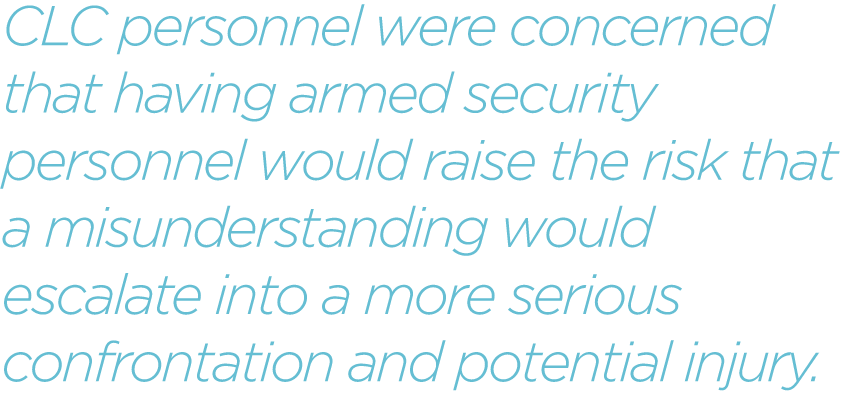Comprehensive Care
More than 3 million reports of child abuse are made in the United States every year, and in California more than 470,000 children have been listed as victims of abuse every year since 2009.
In Los Angeles, Sacramento, and Placer counties, local juvenile dependency courts appoint the Children’s Law Center of California (CLC) to represent victims of abuse, neglect, or abandonment.
Leslie Heimov serves as executive director of the CLC, leading 500 lawyers, investigators, paralegals, and other experts in representing roughly 30,000 children in the Los Angeles region and another 3,000 in Placer and Sacramento counties. Heimov, who began working at the practice as a staff attorney and later as the CLC’s policy director, fully understands how difficult—legally and emotionally—such cases can be on the entire family. Emotions in such cases can run high, sabotaging reason and shouting down better angels.
When the CLC moved out of a Los Angeles courthouse and into its own building three years ago, Heimov mulled over the CLC’s past experiences—ones involving families under a high level of stress nearly every day—and how the nature of the work created a unique risk to the practice.
In its previous office space, there was no need for a security team dedicated to the CLC because the courthouse maintained its own security system for the entire building. Heimov says she realized that while she was personally capable of protecting her clients within the justice system, she would need another kind of expertise to ensure the physical safety of her coworkers, clients, and others in the CLC’s new office.
Risk assessment decisions often proved challenging and complex. Early in the process of readying the new standalone CLC office, Heimov and the management team realized they did not know whether the practice should employ armed or unarmed security officers.

A significant portion of the CLC’s clients are Black boys and young men, who are at greater risk of victimization and violence, Heimov says. CLC personnel were concerned that having armed security personnel would raise the risk that a misunderstanding would escalate into a more serious confrontation and potential injury.
“The worst thing we could think of happening would be for our own client to end up being the victim when they’re the one we’re actually trying to protect,” Heimov notes.
Acknowledging the need for an expert opinion, Heimov connected with Ryan Schonfeld, founder and CEO of risk management services and operations firm RAS Watch. After Schonfeld toured the new CLC office site and began talking with Heimov, she realized how far they could go in shoring up security—both with technology and education.
“Our eyes were opened to all the other things that we should be considering and the way that we could better meet the needs of our staff and our clients,” Heimov says. “We have since embraced the company.”
The CLC decided to work with RAS Watch and signed the office up for a managed service security program that provides training, risk assessments, security systems monitoring, alarm management, and more.
While RAS Watch offers a wide range of services and solutions, CLC opted for a layered approach to security. At the same time, management ensured that all staff members were aware of the security measures being put into effect and how employees could appropriately react to risky situations.
Training is rolled out in stages, first to CLC’s leadership team and then to managers and all employees. CLC employees continuously learn how to deal with potential security issues, de-escalation techniques, and how to respond in an active shooter incident.
RAS Watch also provided the practice’s executive team with tabletop exercises for a variety of scenarios, including active threats, power outages, visits by disturbed or angry persons, and cyber breaches. The simulations ensured that staff could practice their responses, instead of reacting to such scenarios for the first time when the stakes are real and high.
The training also allowed RAS Watch to develop CLC’s crisis protocols, creating robust response plans to the different scenarios the office or staff may encounter.
“There was a lot of face-to-face interaction, which I think was important, along with all the bells and whistles and equipment and technology,” Heimov explains. “Staff feeling confident in the advice that they’re being given is important because you need people to embrace the protocol if it’s going to work.”
Sometimes CLC’s partners and subject matter experts—including social workers, mental health professionals, and investigators—work outside the office and encounter different risks. Heimov recalls an incident where a staff member witnessed a shooting while making an off-site visit related to a case. Although the employee was unharmed and their client’s case was unrelated to the shooting, CLC staff members were still concerned.
Schonfeld visited the office within a week of the shooting to answer questions, run scenarios, and provide advice on how to avoid being caught up in such incidents when possible—but also how to stay safe when a dangerous situation is unavoidable.
Along with educating and training staff, RAS Watch also operates as the CLC’s security center from a separate base outside of Los Angeles. The security operations center is online 24/7, allowing operators to coordinate with the alarm company, provide information and assistance for any security concerns or questions, and handle emergency mass communications and responses for the firm.
In early 2020, as the coronavirus pandemic began to impact California, RAS Watch was also able to help address concerns about COVID-19. It offered the CLC ideas on how to integrate wellness protocols with existing security plans, and how to take advantage of technology to simplify processes.
For the CLC, caring about the clients—both in and out of the courtroom—is part of the job, which is perhaps what also makes RAS Watch a welcome partner.
The fact that RAS Watch is “involved with the personnel and the company, as well as providing the technology, is what makes it for us such a positive relationship and so beneficial to our organization,” Heimov says. “We feel like RAS cares about us.”
For more information: Contact RAS Watch at 1.310.967.8160.
